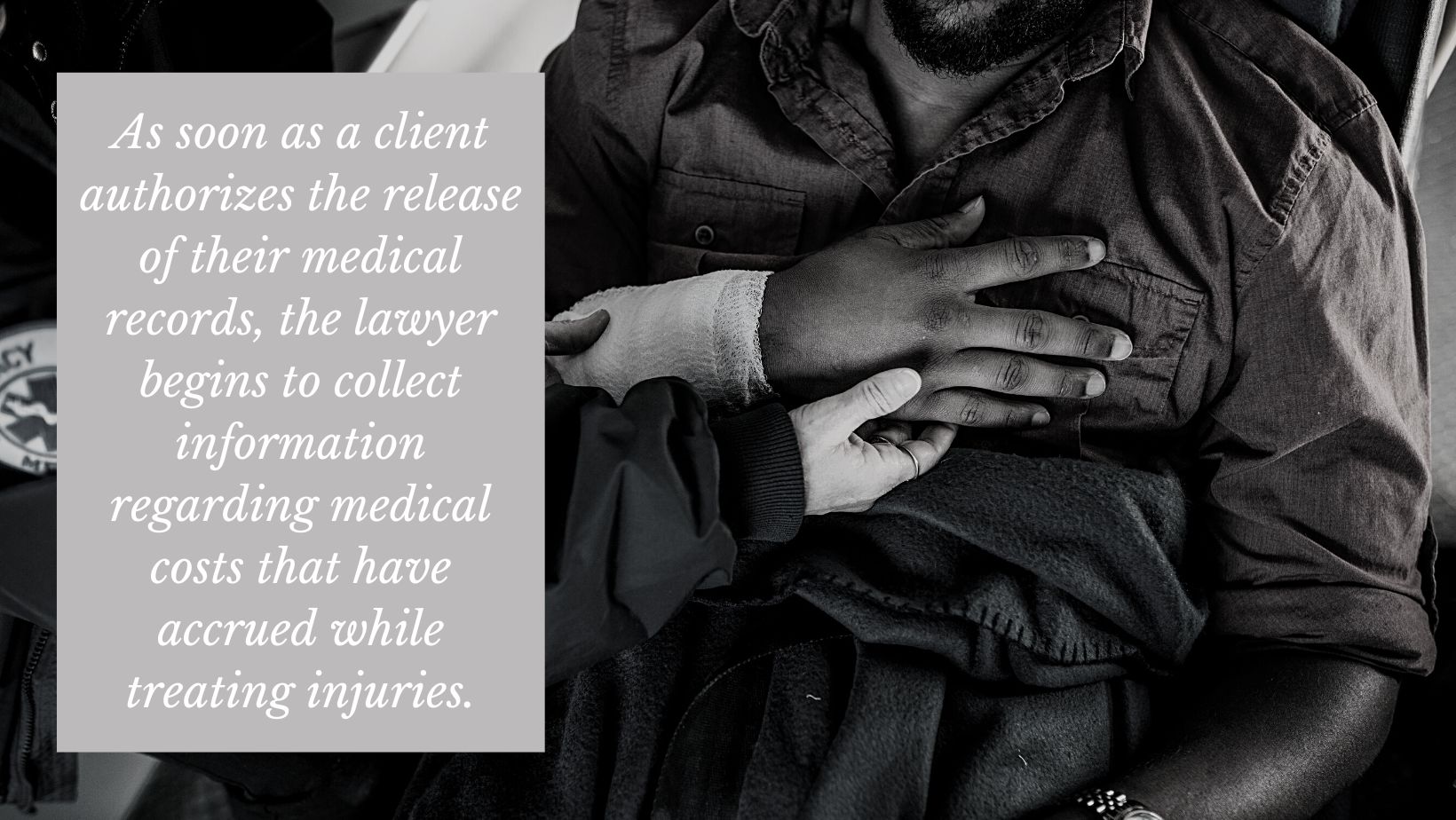If you have been hurt in an accident in New Mexico, it’s important to contact a knowledgeable New Mexico personal injury lawyer right away. Accidents that cause bodily, mental, and emotional harm are often due to the negligence of a person or business. What personal injury lawyers do is help clients seek compensation for medical bills and wages lost during their recovery.
 Image by Canva.com
Image by Canva.com
While the Department of Justice estimates that about 4% of personal injury cases go to trial, the majority of a lawyer’s time is spent outside of court gathering evidence, negotiating with insurance companies, and more. Hiring an attorney can get victims the money they deserve so they can begin to focus on healing.
What Kinds of Cases Does a New Mexico Personal Injury Lawyer Handle?
Some of the most common types of accidents that personal injury lawyers take on are:
- Auto accidents involving bicycles, cars, trucks, motorcycles, and buses.
- Slip and fall accidents.
- Dog bites.
- Construction accidents.
- Injuries due to medical malpractice.
- Illness or injury due to defective products.
- Premises liability incidents (getting injured on someone’s property).
- Wrongful death incidents.
How Does a Personal Injury Attorney Help You With Your Case?
During an initial meeting, a personal injury lawyer asks detailed questions about the incident that caused the injury. After that, the attorney takes the following steps to ensure an accurate payment amount is received.
Investigates the Accident
After reviewing initial police reports filed when the incident happened, the attorney begins an investigation to determine who is at fault. To gather evidence, a knowledgeable personal injury lawyer:
- Tracks down and interviews eyewitnesses.
- Determines key witnesses.
- Takes photographs of vehicles, locations, and injuries.
New Mexico is a pure comparative fault state, meaning that after a car accident, either party involved can sue the other party for damages. The amount of payment either party can receive depends on who a jury decides is more at fault. For example, if a defendant is determined to be 75 percent responsible and a claimant is found to be 25 percent responsible, the claimant’s damage award is reduced by 25 percent. This is why it’s so important to have a lawyer who will thoroughly investigate.
Gathers Medical Reports and Speaks with Doctors
As soon as a client authorizes the release of their medical records, the lawyer begins to collect information regarding medical costs that have accrued while treating injuries. Records the attorney will gather include:
- Ambulance rides
- Hospital visits
- Follow-up doctor appointments
- Scans such as MRIs, CTs, and X-Rays
- Physical therapy or chiropractic care
If a victim has been receiving Workers Compensation, the attorney will be watching for the date Maximum Medical Improvement is reached, which is when doctors say further improvement is unlikely. At this point, doctors will send a written statement to the attorney denoting any physical restrictions and whether or not the victim can return to work. This will help determine whether further compensation can be expected.
 Image by Canva.com
Image by Canva.com
Calculates Compensation Amounts Owed to the Victim
Using medical records, a personal injury attorney adds up the victim’s bills and expected expenses caused by the accident. The calculation will include:
- Special compensatory damages (direct expenses from the accident) such as cost to repair or replace a vehicle, medical care costs, physical and mental health therapy costs, lost wages, and reimbursement for trips canceled due to injury.
- General compensatory damages including pain, suffering, and mental anguish.
- Punitive damages, which are included in a claim if the party at fault acted with malicious intent to purposely cause harm.
- Additional amounts the claimant has had to pay, including legal fees and insurance deductibles.
Prepares a Demand Letter
The first step a lawyer takes to request compensation is to write a letter to the opposing party’s insurance company demanding a specific payment amount. The demand letter is one of the most important elements of a personal injury case, because it serves as the first chance for the accused party to take responsibility for injuries prior to legal action. In the letter, the attorney includes:
Information About the Incident
This clearly outlines the names and addresses of the sender and recipient, as well as the time and date of the incident.
The Claim and Expected Monetary Compensation
Citing information from the legal investigation and medical records, this section explains why the opposing party is at fault and how much money will cover medical expenses, pain and suffering.
Supporting Evidence
This includes accident photos or videos, a copy of the police report, and any other evidence that proves the defendant is at fault.
Expected Resolution and Deadline
This states what the other party must do, and a date by which to do it in order to avoid legal action.
Attempts to Negotiates with Insurance Companies
If a lawyer receives a satisfactory response to the demand letter by the deadline, he or she draws up a contract that legally binds the other party to pay the requested amount. However, if the requested amount is disputed, the personal injury attorney attempts to negotiate with the insurance company’s attorneys in an effort to settle outside of court.
Files a Complaint and Serves it to the Defendant
If the insurance company’s lawyers refuse to negotiate, the personal injury attorney begins to prepare a lawsuit. First, he or she draws up a document with the same information as the demand letter, but files the document or “complaint” with the court. Then he or she takes the complaint and “serves” it to the defendant, letting them know that they are expected in court on a particular date. At this point, the defendant likely hires a defense attorney.
Attends Pre-Trial Appointments
Both the personal injury lawyer and defense lawyer appear in court to discuss the case with the judge. Each attorney will have prepared their arguments, and efforts will be made to settle on a compensation amount.
Attends Trial if Necessary
If a case goes to trial, the personal injury lawyer will do all the preparation necessary to win the case, including calling in key witnesses, interviewing cross witnesses, and staying by the client’s side until the jury has reached a verdict.
Ensures Compensation is Received
A personal injury attorney’s job is not finished just because an agreement has been made or a trial is won. Financial compensation should be received by the client within 30 days, and a lawyer will continue to follow up to make sure that happens. If payment is not received, the attorney will go after the defendant until it is.
Want to Know More About What Personal Injury Lawyers Do?
Our team of personal injury lawyers would be happy to explain all the steps we will take to get clients the compensation they deserve. Reach out to us today to schedule a consultation.
Please note that this article was created for advertisement purposes, and it does not constitute any contractual legal relationship, nor imply one.
